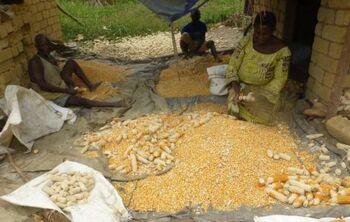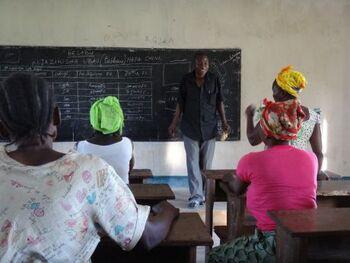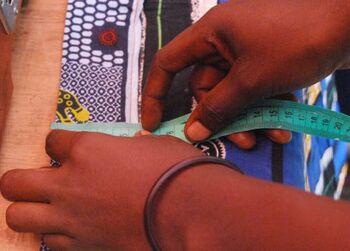Approach
The project conducts activities in three connected areas of intervention:
-
Functional literacy. The project supports the provision of basic education services for adult learners in Maniema Province, targeting reading, writing and functional arithmetic.
-
Agricultural production. Through the improvement of agricultural techniques and standards, the project seeks to improve local knowledge transfer and production.
-
Support for micro, small and medium-sized enterprises (MSMEs). The GOPA Consulting Group has been commissioned to support efforts to increase the professionalism and formal organisation of local artisans.
The consulting firm ECO Consult Sepp & Busacker Partnerschaft supported the implementation of the project in the areas of monitoring and evaluation.
Results
Between 2012 and 2015, the Inspection of Social Affairs (INSPAS) developed curricula for three consecutive levels of literacy teaching, and conducted its own teacher training measures. These courses directly address central topics from the project’s second and third components, ‘Agricultural production’ and ‘MSME support’, but they also handle more general issues, such as gender, health and hygiene. The success rate in the final examinations was 80 per cent on average. Village communities received guidance in the local management of their respective literacy centres. Currently, about 500 adult learners attend literacy courses offered in 15 centres across the region.
In all, 260 farmers, including 112 women, have received advice from the technical authorities responsible for agriculture and rural development, IPAPEL and IPDRAL. Some 56 farmers, of whom 10 are women, have been appointed ‘best producers’, and they now share their knowledge of cultivation with others at the local level. Following the second cultivation period in 2015, almost half of the farmers who had received advice began to apply new techniques for higher yields.


